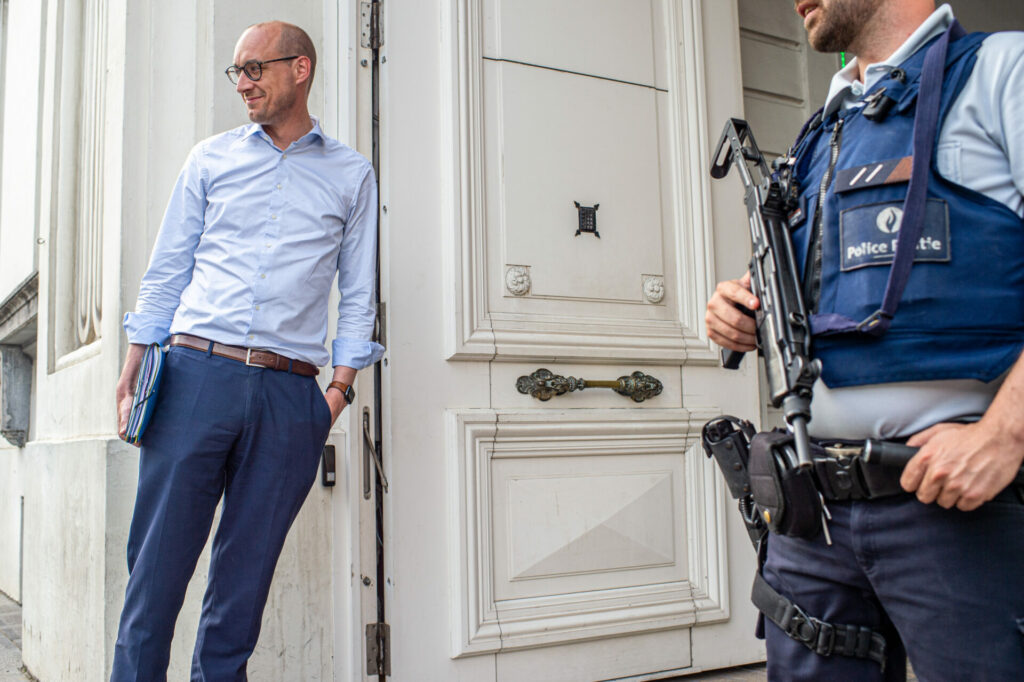For the eighth time, the ministers of the Federal Government are once again meeting to try and reach an agreement on Belgium's pension reform since 09:00 on Saturday morning.
For weeks now, the ministers have been trying to agree on a reform of pensions, but some measures remain the topic of discussion.
1. The affordability of pensions
An important element for pension reform, for both the Flemish Christian-democrat CD&V party and the Flemish and Francophone liberals Open Vld and MR, is the affordability of pensions.
"We must, above all, ensure that the system remains affordable. That someone who starts working today is also entitled to a decent pension in the long run," CD&V Deputy PM and Finance Minister Vincent Van Peteghem told VRT.
Figures published last week by the Study Committee on Ageing showed that ageing will increase the social costs in Belgium to 29.7% of the gross domestic product (GDP) by 2049.
"This week, the experts have made it very clear that the current pension system is unsustainable in the long term," Open VLD State Secretary for the Budget Eva De Bleeker stressed this morning. "We really need to work on those reforms now. I hope that it will get through and that we have to have the courage to carry out long-term reforms."
2. The minimum pension
The minimum number of years of work required to receive the minimum pension of €1,500 also remains a major discussion point.
"We think it is only fair that in order to get a full-fledged minimum pension, you also have to have worked a whole number of years. That is fair," said De Bleeker. "People who have contributed to the system should also reap the benefits." For her, a transition period is necessary and logical.
Earlier, Prime Minister Alexander De Croo proposed to guarantee a full-time minimum pension for those who have worked for 20 years, 260 days per career year.
Related News
- De Croo invites ministers to barbecue for calmer discussion on pension reform
- Public expenditure: What are your taxes used for in Belgium?
The Francophone socialist PS party, which also includes Pension Minister Karine Lalieux, initially opposed this, but now seems to be more concerned about the transition period, as it does not want the accrued pension rights to be affected.
According to unconfirmed reports in local media, De Croo now proposed a larger transition period, and the obligation to have worked for 20 years would no longer apply to older workers.
3. Early retirement
At the request of a number of parties around the table, access to early retirement after a 42-year career and the early retirement age of military personnel and SNCB driving personnel are also being discussed today.
De Croo's earlier proposal suggested that people will only be able to take early retirement after a 42-year career, during which they have effectively worked for 35 years (260 days per year). You also have to be at least 60 years old.
In Lalieux's latest proposal, however, you can take early retirement at age 60 and with a career of 42 years if you have effectively worked 25 years (156 days per year).
Whether the Government will reach an agreement today is not certain. De Bleeker said this morning at the start of the negotiations that she will do everything possible to conclude an agreement today. Previously, De Croo put forward the date of 21 July as the deadline.

